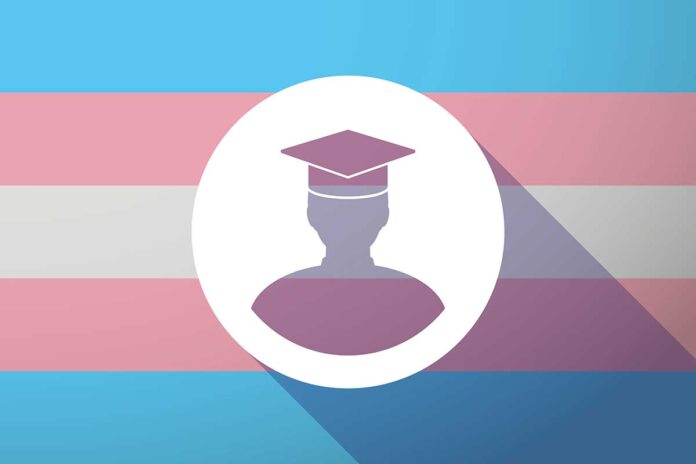Trans and gender nonconforming youth now have a set of nondiscrimination protections in Philadelphia schools and organizations serving children and teens, thanks to new regulations that the Philadelphia Commission on Human Relations recently enacted. The laws are in effect in charter schools, daycares, after school programs and sports leagues. The commission will enforce them via investigation and the imposition of fines, should violations be reported.
The laws dictate that trans and gender nonconforming youth can use their desired names and pronouns and wear their preferred clothes; that they can use restrooms and lockerrooms that correlate to their gender identity; that institutional staff take measures to prevent and correct pejorative language directed toward or used in reference to trans and nonbinary youth; that staff are not permitted to disclose a child’s trans or nonbinary status; and that institutional leadership must have staff go through routine training to prevent and address bullying and harassment directed toward trans and gender diverse kids.
These regulations are part of legislation that City Councilmember Helen Gym introduced in 2019, but a lengthy legal review process and setbacks related to the pandemic delayed their passage, the Inquirer reported.
“Philadelphia is leading on protections for trans and nonbinary youth in our schools – and now, in all organizations that work with young people,” Gym said in a tweet. “These policies were led and championed by trans youth and will make a world of difference across the city.”
When Gym initially introduced the legislation in 2019, Chloe Harris was part of a group of trans advocates brought in to consult on the needs of trans youth.
“These protections are important to ensure that all of the kids in our city’s summer camps, after school and youth programs have a safe and affirming environment,” Harris said. She helps to implement the law as a recreation center leader at Philadelphia Parks and Recreation.
The legislation package was created to essentially expand the School District of Philadelphia’s (SDP) existing Policy 252, a set of guidelines on respecting trans and gender diverse students in schools, into a blanket nondiscrimination policy for the city.
“I’m really happy to see the City adopt what the School District has had for years, and especially pleased that there is a clear mechanism for enforcement,” said Tim McKinney, LGBTQ+ resource and program director for the youth organization Big Brothers Big Sisters Independence. “I’ve never been a fan of the sentiment that youth need us to be their voices, but rather that they need adults to facilitate their access to spaces where decisions are made about them. I think the great strength of Policy 252 is that it’s centered on uplifting our students’ own voices in a manner that allows them to be the experts on their own experience.”
A group of students developed Policy 252 as part of a process carried out at The Attic Youth Center, and The Attic’s Bryson Institute administered the initial training, said Attic Interim Executive Director Jasper Liem.
“We are so grateful for this additional protection for trans and gender diverse youth,” Liem said in an email. “Councilmember Gym’s advocacy and the support of the City will expand safer spaces beyond our schools and we look forward to partnering with other youth agencies to increase staff capacity and training.”
These protective regulations are needed now more than ever, as many state lawmakers have been passing and attempting to pass legislation that targets trans youth, including preventing trans youth from accessing gender-affirming healthcare, participating in school sports consistent with their gender identity and being able to receive gender-inclusive classroom instruction. Though they are slated to be vetoed, the Pennsylvania legislature recently passed a bill targeting trans youth in school sports, and the state Senate passed two bills that severely restrict LGBTQ+ content being taught in schools, one of which is said to be worse than Florida’s “Don’t Say Gay” law.
“We’re working here for kids,” Parks and Recreation’s Harris added. “We’re not working for their families; we’re not working for mom and dad to feel good; we’re not working so we can feel good about what we do. We’re working to give these kids the best experience that we can give.”
Parents and members of local organizations dedicated to trans and LGBTQ youth and families expressed support for Philly’s new regulations.
“I am so joyful that our kids will be able to have safe, welcoming, and affirming spaces for them to grow and thrive,” Philadelphia Family Pride (PFP) board member Michael Galvan said in an email. Galvan has an elementary-age child. “Philadelphia Family Pride knows that the ability to recognize our children for their truths is a critical step in strengthening communities all across Philadelphia.”
PFP, PFLAG and The Attic will co-host an event on Wednesday, Aug. 10 led by Harris and Councilmember Gym. “We encourage all families interested in learning more about this legislation to attend,” Galvan said.
The members of Gender Awareness and Inclusion Network (GAIN) fight for gender equality in the Lower Merion School District, but have plans to branch out their advocacy work.
“We were really excited to read that Philadelphia had taken this step,” GAIN leadership collectively said in an email. “We hope the municipal and county governments around Philadelphia pass similar nondiscrimination legislation as well. It’s really just fundamental to building a welcoming, inclusive community because it tells everyone that transgender and gender diverse kids not only belong, but are important to us.”
